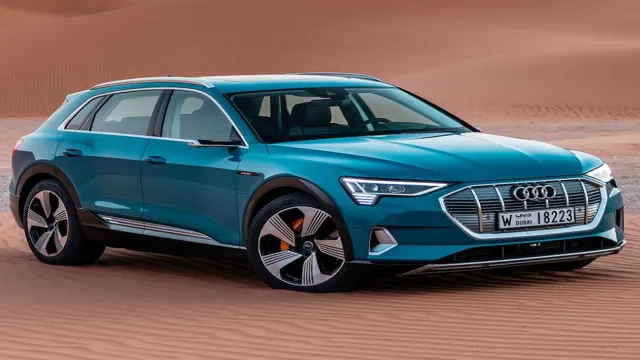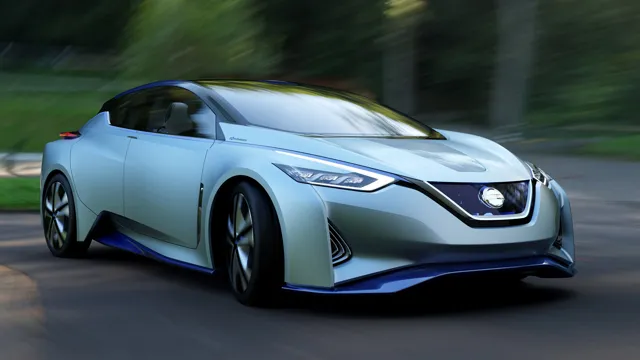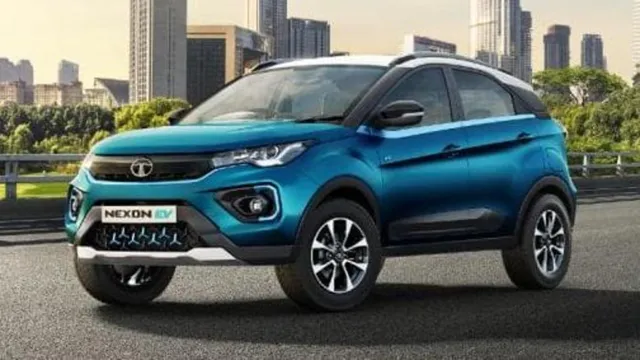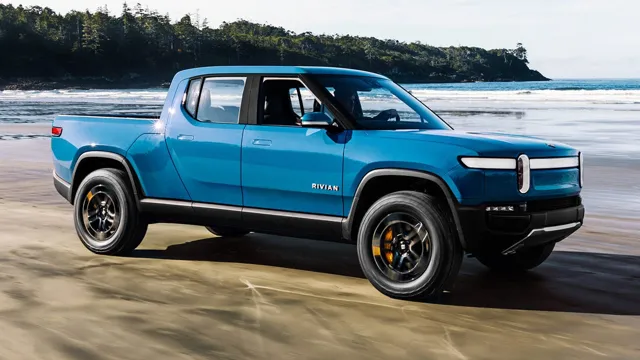Revving Up the Future: Exciting Electric Car News and Updates in the UK for 2019
Are you ready for the buzz about the latest electric car news in the UK? 2019 has proven to be an exciting year for electric vehicles, with the market continuing to grow and evolve. From new models hitting the roads to advances in charging infrastructure, there’s plenty to keep up with if you’re a fan of eco-friendly transport. One of the most talked-about stories of the year has been the launch of the Tesla Model 3 in the UK market.
This sleek electric sedan has been eagerly awaited by fans of the brand, and it’s already making waves with impressive acceleration, range, and tech features. Plus, the Model 3 is more affordable than Tesla’s previous offerings, making it a more accessible option for many drivers. But Tesla isn’t the only company making moves in the electric car world.
Major automakers like Audi, Mercedes-Benz, and Jaguar have all released or announced electric models in 201 The options for drivers seeking a more sustainable way to travel are expanding rapidly, and this competition is driving innovation and improvements in technology. Of course, electric vehicles are only as useful as the infrastructure that supports them.
Fortunately, the UK is investing heavily in charging points and other incentives to encourage drivers to make the switch. For example, the government recently announced a £400m fund to boost EV charging infrastructure across the country. Initiatives like this are key to making electric cars more viable for drivers who need to travel longer distances or don’t have access to home charging options.
All in all, 2019 is shaping up to be a pivotal year for electric cars in the UK. More models, better infrastructure, and growing public interest all point to a future with fewer emissions and more sustainable transport options. Keep an eye out for further developments in this exciting field!
Top Electric Car Models in UK
Electric car news in the UK has been increasingly exciting in 2019, with a growing number of options for those looking for a more environmentally-friendly mode of transportation. Among the top electric car models in the UK, the Kia e-Niro has gained popularity for its impressive range of up to 282 miles on a single charge. The Nissan Leaf remains a top choice for its affordability and practicality, with a range of up to 168 miles.
For those in need of a larger vehicle, the Hyundai Kona Electric offers a range of up to 279 miles and plenty of space for passengers and cargo. Other popular options include the Tesla Model 3, Jaguar I-PACE, and BMW i3, each offering unique features and advantages for electric car enthusiasts. With more options than ever before, it’s an exciting time to consider making the switch to an electric vehicle in the UK.
Stats on Electric Car Sales in UK 2019
When it comes to electric car sales in the UK in 2019, the top models are quite clear. The Tesla Model 3 is the clear leader, selling over 15,000 units in the first half of the year alone. Following close behind is the Nissan Leaf, with over 7,000 units sold in the same time frame.
The BMW i3 and the Volkswagen e-Golf also make up a significant portion of electric car sales in the UK. These top models are likely popular due to their impressive range, sleek design, and technologically advanced features. As more consumers look to reduce their carbon footprint and make more environmentally conscious choices, it’s no surprise that these electric car models are the ones leading the pack in the UK market.

Upcoming Electric Car Launches in UK 2019
Are you ready for the electrifying lineup of new electric car models set to hit UK roads in 2019? With climate change concerns becoming ever more pressing, there’s never been a better time to consider making the switch to an eco-friendly vehicle, and this year’s offerings are sure to impress. Some of the most highly anticipated models set to debut include the sleek Jaguar I-PACE, the affordable Nissan LEAF, and the stylish Audi e-tron. If you’re looking for a luxury ride, the Tesla Model 3 and the Porsche Taycan are both set to make their UK debut in 201
With improved range and charging times, driving an electric car has never been easier, and with incentives such as lower taxes and government grants available, it’s a smart choice for both the environment and your wallet. Don’t be left in the slow lane – explore the exciting world of electric cars today.
Changes in UK Government Policies for Electric Cars
Electric car news in the UK for 2019 has been all about policy changes to make driving an electric vehicle more attractive. The government has set a target to achieve net zero emissions by 2050, and this means putting more electric cars on the roads. One way they are doing this is by increasing funding for the plug-in grant, which provides cash incentives for electric car buyers.
The grant will now cover up to 35% of the cost of a car, up to a maximum of £3,000. Another change is the removal of the Vehicle Excise Duty (VED) for electric cars costing less than £40,000. This is part of the effort to make electric cars more accessible and affordable for drivers.
These changes in UK government policies for electric cars are a step in the right direction, encouraging more people to switch to electric vehicles and help combat climate change.
Impact of the New Clean Air Strategy on Electric Cars in UK
With the release of the new Clean Air Strategy in the UK, there may be some significant changes for electric cars. The government has set the ambitious target of phasing out the sale of new petrol and diesel cars by 2035, and this strategy is one of their steps towards achieving this goal. The strategy aims to reduce emissions through a range of measures, including working with local authorities to implement clean air zones and encouraging transport to be more sustainable.
This could mean more support for electric vehicle charging infrastructure, making it easier for drivers to charge their cars, and potentially reducing the cost of charging. In addition, the government is also considering introducing a “green number plate” system that would identify and promote zero-emission vehicles, which would include electric cars. With the new Clean Air Strategy, it seems that the UK is taking significant steps towards a cleaner, more sustainable future, which should only enhance the benefits of electric cars for consumers and the environment alike.
UK Government Plans for Electric Car Charging Infrastructure
The UK government has recently announced plans to implement changes in policies related to electric cars to boost the growth of the electric vehicle market. The focus is on developing the country’s charging infrastructure, with a target of having a public charging point within 25 miles of each household by 2030. This move will help to encourage more people to switch to electric vehicles by alleviating concerns around ‘range anxiety’ and making electric cars more accessible.
The government is also considering measures to incentivize businesses to install charging points and to ensure that all new buildings with parking facilities have charging points installed as standard. These policies demonstrate a strong commitment to reducing greenhouse gas emissions and improving air quality. It is a positive step towards a more sustainable and eco-friendly future, benefiting both the environment and the economy.
UK’s Drive to Zero Emissions by 2040
The UK government has set a bold target of reaching zero emissions by 2040, which is a massive undertaking in terms of infrastructure, transportation, and consumer behavior. As part of this mission, the government has introduced several changes in its policies for electric cars, which have been the focus of efforts to reduce carbon emissions in the transportation sector. The new policies will make it easier for people to switch to electric cars by offering incentives, including grants, tax exemptions, and reduced road tax rates.
These incentives will help to make electric cars more affordable and accessible to the mass market. Additionally, the government has imposed strict regulations to discourage the use of traditional gasoline and diesel cars, by requiring new cars to meet strict emissions standards and phasing out the sale of cars that are not electric or extremely low emission. As a result, the UK is poised to lead the world in the transition to a clean energy future, paving the way for other countries to follow suit in the race towards a sustainable future.
Global Trends Affecting Electric Cars in UK
Electric car news in the UK has been heavily influenced by global trends in recent years. With the increasing focus on reducing carbon emissions and combating climate change, electric vehicles have become more popular than ever before. In the UK, the government has set a target of banning the sale of new petrol and diesel cars by 2030, which has further spurred the growth of the electric car market.
Additionally, advancements in technology have made electric cars more affordable, efficient, and capable of longer ranges. There has also been a rise in the adoption of electric charging stations across the country, making it easier for EV owners to charge up on-the-go. As a result, electric car sales in the UK have skyrocketed, with 2020 seeing an increase of over 180% compared to the previous year.
With these trends set to continue, the future of the UK’s automotive industry looks electric!
China’s Dominance in Electric Car Manufacturing and its Impact in UK
China’s dominance in electric car manufacturing is having a significant impact on the UK market. As global trends continue to shift towards more sustainable transportation options, countries like China have taken the lead in the production of electric vehicles. This has resulted in a surge of electric car models hitting the market, making them more accessible to consumers worldwide.
However, this dominance has also raised concerns about the quality of these vehicles, particularly when it comes to safety and durability. While China’s electric cars are generally cheaper than their European counterparts, some worry that the lower prices may come at the expense of quality. Despite these challenges, the UK is pressing ahead with its ambitions of becoming a world leader in EV adoption, with government initiatives such as the ban on new petrol and diesel cars by 2030.
As the UK and other countries look to transition to electric cars, it’s important to address issues of cost and quality while promoting sustainable transportation options.
Impact of Electric Car Production on Battery Material Supply Chain in UK
The impact of electric car production on the battery material supply chain in the UK is a hot topic, especially as global trends continue to affect this industry. One of the largest global trends is the push towards reducing carbon emissions. The UK government has set strict targets for reducing carbon emissions, which has led to a surge in demand for electric cars.
As a result, the production of lithium-ion batteries used in electric cars has skyrocketed. This high demand has led to a potential shortage of raw materials such as lithium, cobalt, and nickel. The challenge for the UK is to ensure a sustainable and secure supply of these materials for its growing electric car industry.
While the surge towards electric cars is a positive step towards reducing carbon emissions, it is essential that we consider the impact on the supply chain and work towards creating a sustainable model for the future.
Overview of UK’s Electric Car Market in 2019
Electric cars are becoming increasingly popular in the UK, with sales rising by 144% in 2019 compared to the previous year. According to the Society of Motor Manufacturers and Traders, more than 72,000 electric vehicles were sold in the UK last year, with an upward trend expected in the coming years. This increase could be attributed to a number of factors, including the growing public concern over the negative effects of carbon emissions on the environment and the government’s support in the form of grants and incentives for buying electric vehicles.
In fact, the government aims to ban the sale of new petrol, diesel, and hybrid cars by 2035, which is another reason for the rapid growth in electric cars. The demand for electric cars is expected to continue to rise as more models hit the market and battery technology continues to improve, making them a more accessible and attractive option for consumers. If you’re looking for eco-friendly vehicles or just curious about electric car news in the UK, the current market trend and government regulations have turned back skeptics from making people switch to electric cars.
Conclusion
As the UK moves towards a cleaner and greener future, electric cars are becoming increasingly popular and accessible. With advancements in battery technology and government incentives, more and more people are making the switch to electric vehicles. From the sleek and stylish Jaguar I-PACE to the practical and affordable Nissan Leaf, there are now a wide range of electric cars available for every budget and lifestyle.
So, whether you’re looking to reduce your carbon footprint, save money on fuel, or simply enjoy the quiet, smooth driving experience of an electric car, there has never been a better time to go electric in the UK.”
FAQs
What are the top-selling electric cars in the UK in 2019?
The top-selling electric cars in the UK in 2019 are the Tesla Model 3, Nissan Leaf, and BMW i3.
What government incentives are available for purchasing an electric car in the UK?
The UK government offers a plug-in car grant of up to £3,000 towards the cost of an eligible electric car. There are also grants for home charging installation and exemption from certain taxes and congestion charges.
What advancements have been made in electric car technology in 2019?
In 2019, there have been new developments in battery technology, allowing for increased range and faster charging times. There have also been improvements in charging infrastructure and the availability of electric car models.
What is the outlook for the future of electric cars in the UK?
The UK government has set a target for all new cars to be zero-emission by 2040, which is expected to drive continued growth in the electric car market. Advances in technology and infrastructure are also expected to make electric cars more accessible and appealing to consumers.







